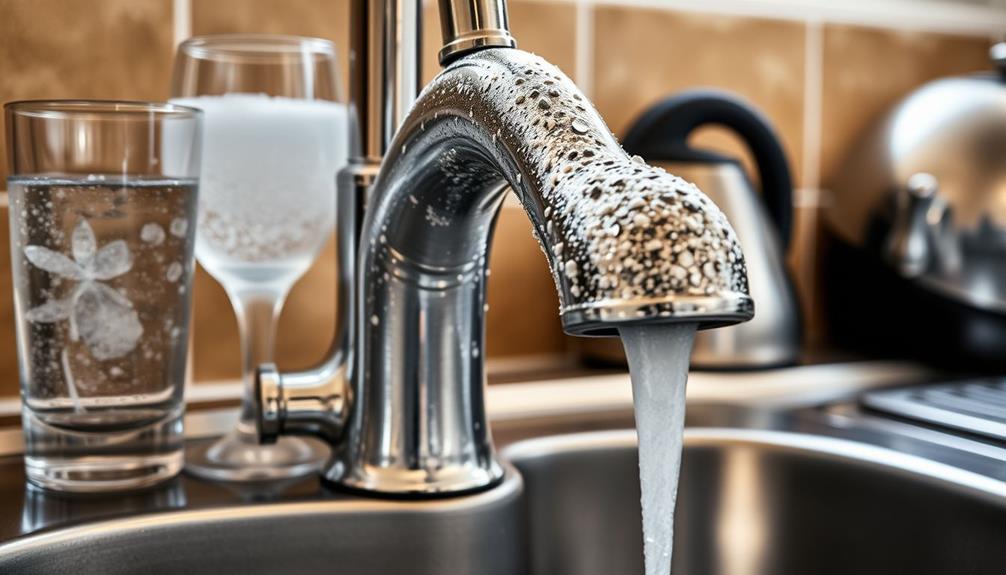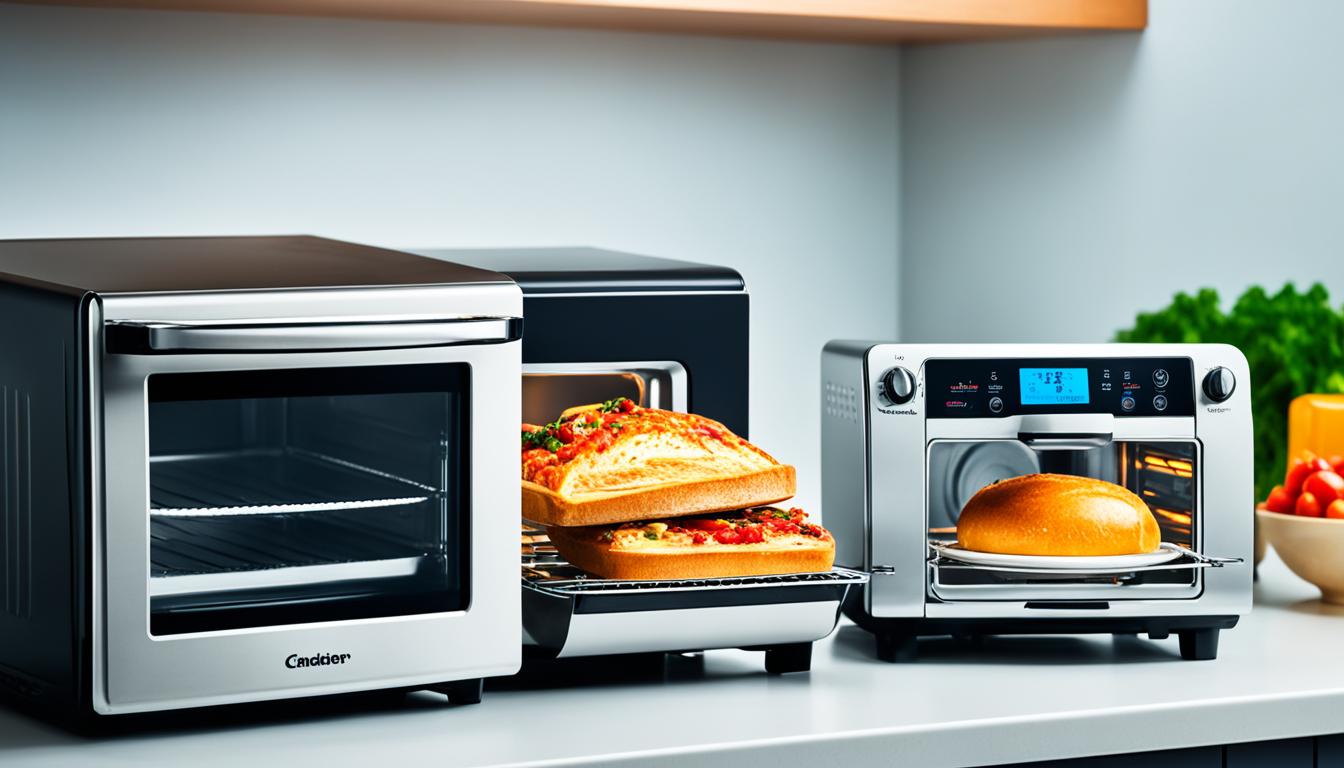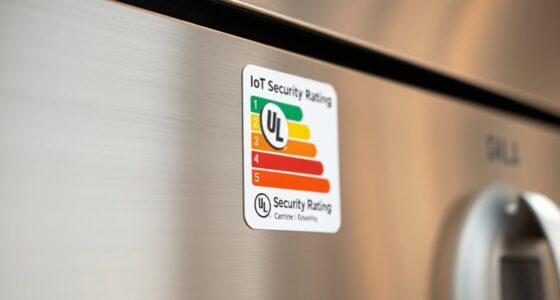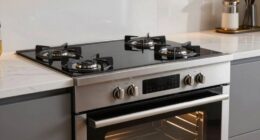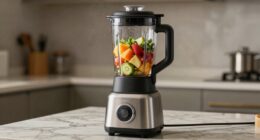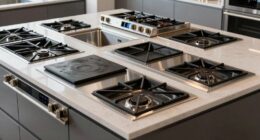Hard water can wreak havoc on your appliances, causing mineral buildup that reduces efficiency and shortens their lifespan by up to 50%. This scale not only clogs pipes and valves but also makes cleaning less effective, leaving spots on your dishes. To mitigate these issues, consider investing in a water softener and maintain a regular cleaning schedule for your appliances. Use specialized descalers or natural solutions like vinegar monthly to keep things running smoothly. With the right strategies, you can protect your home's appliances from damage and improve their performance markedly. Discover additional insights to keep your devices in top shape.
Key Takeaways
- Hard water causes scale buildup in appliances, reducing efficiency by 30% to 50% and increasing energy bills by up to 29%.
- Regular cleaning and maintenance of appliances, including monthly descaling, can prevent mineral accumulation and prolong their lifespan.
- Installing a water softener system effectively reduces dissolved minerals, minimizing hard water issues and protecting plumbing systems.
- Using specialized descaling solutions and natural cleaners like vinegar helps remove existing mineral deposits from appliances.
- Maintaining cooler water settings in appliances can reduce the risk of mineral precipitation and improve overall cleaning effectiveness.
Understanding Hard Water
Hard water is a common issue that many homeowners face, and understanding its characteristics is essential. It contains high levels of dissolved minerals, primarily calcium and magnesium, which can lead to significant mineral build-up in your plumbing and appliances.
Garage door openers can also be affected by hard water, as mineral deposits may interfere with their mechanisms. When water hardness exceeds 7.5 grains per gallon (gpg), it can cause operational inefficiencies in your appliances, reducing their performance over time.
This mineral build-up, known as scale, can decrease the lifespan of your water-dependent appliances by 30% to 50%. It clogs pipes and leads to costly repairs.
Additionally, hard water can affect your cleaning routines; soaps and detergents become less effective, making it harder to achieve that sparkling clean finish. You might notice cloudy dishes and spots on your glassware, all thanks to the mineral deposits left behind during washing.
To combat these challenges, a water softener can help by removing excess minerals, improving energy efficiency, and prolonging the life of your appliances.
Causes of Hard Water Buildup
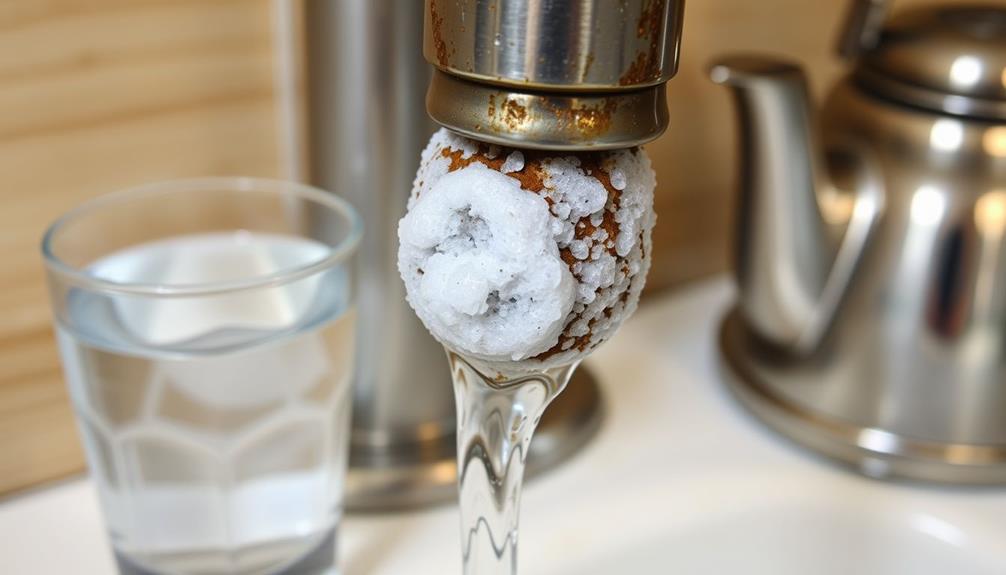
The buildup of hard water is primarily a result of groundwater interacting with minerals found in the earth, particularly limestone and chalk. As water flows through these deposits, it dissolves high levels of calcium and magnesium, leading to what you know as hard water.
When this hard water travels through your pipes and appliances, it leaves behind mineral deposits, resulting in scale build-up over time. This scale can contribute to clogging issues, making it essential to address the problem before it worsens.
The main causes of hard water buildup are the high concentration of calcium carbonate deposits in your water supply and the geological composition of the area. Approximately 85% of homes in the U.S. have hard water, meaning many plumbing fixtures face this issue.
You'll find that hot water systems are particularly susceptible, as heating accelerates the precipitation of these minerals. This scale build-up not only clogs your pipes but also affects the energy efficiency of your appliances.
Increased water pressure pushes hard water through your plumbing, exacerbating the problem. By understanding these causes, you can take proactive steps to mitigate hard water's impact on your home.
Impact on Appliances
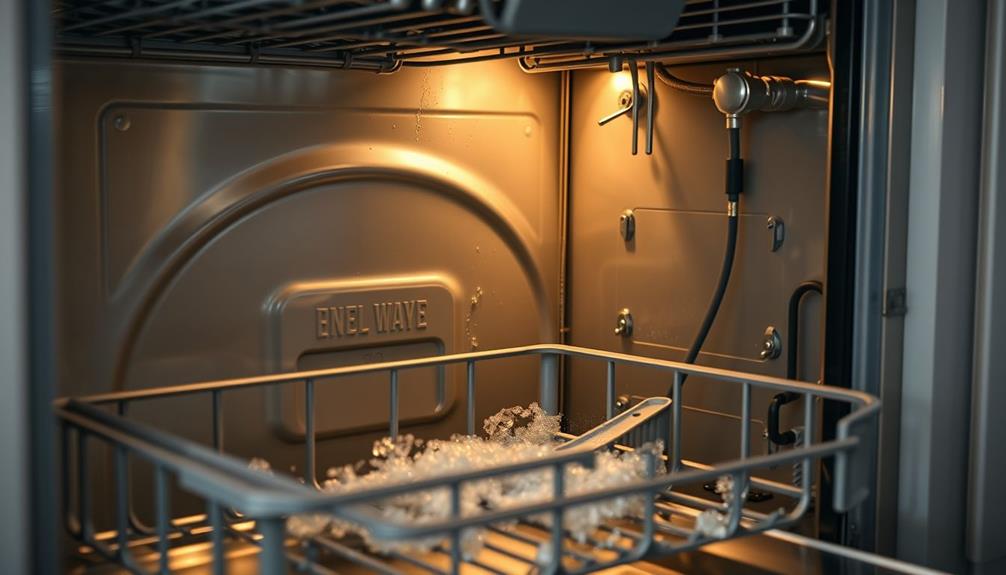
When hard water flows through your appliances, it can create a host of problems that greatly impact their performance and longevity. The scale buildup from hard water can reduce efficiency by 30% to 50%, leading to increased energy consumption—by as much as 29%. This means your water heaters and dishwashers work harder, resulting in higher utility bills.
Additionally, the air quality in your home can be affected by the dust and allergens that accumulate due to ineffective cleaning caused by hard water, making the use of air purifiers vital for maintaining a healthier environment.
Mineral deposits can clog pipes, valves, and sprayer jets in your dishwashers and washing machines. This not only hampers cleaning effectiveness but can also cause leaks, damaging your appliances further.
Additionally, hard water decreases the effectiveness of soaps and detergents, leaving unsightly spots on dishes and dingy clothing, which may encourage you to use more cleaning products.
Moreover, the presence of hard water can shorten the lifespan of your appliances, leading to more frequent breakdowns and costly maintenance.
To combat these issues, regular descaling and maintenance are essential. It's recommended to flush your water heaters annually to guarantee peak performance, thereby helping your appliances last longer and operate more efficiently in the face of hard water challenges.
Cleaning and Maintenance Solutions
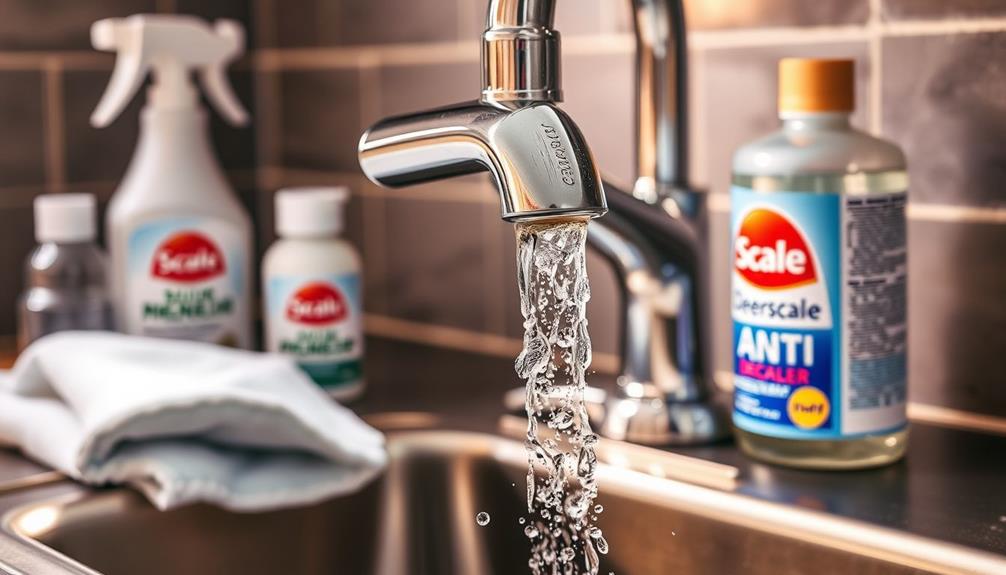
Many homeowners overlook the importance of regular cleaning and maintenance to combat the effects of hard water on their appliances. To maintain efficiency and prolong the lifespan of your devices, you should establish a consistent cleaning schedule. It's crucial to clean dishwashers and washing machines at least once a month to prevent hard water buildup that can hinder performance.
Utilizing specialized cleaners like Affresh can effectively remove mineral deposits, while natural solutions like vinegar and lemon juice offer excellent alternatives. Here's a quick reference table to help you choose the right cleaning method:
| Cleaning Method | Frequency |
|---|---|
| Specialized Cleaners | Monthly |
| Vinegar or Lemon Juice | Every two weeks |
| Appliance Deep Clean | Quarterly |
| Maintenance Check-Up | Biannually |
Prevention Strategies

Maintaining your appliances in ideal condition hinges on effective prevention strategies against hard water damage. One of the best ways to prevent hard water issues is by investing in a water softener system. This system reduces the levels of dissolved minerals, particularly calcium and magnesium, which can wreak havoc on your major appliances. Without this solution, scale can completely build up, impacting your washing machine and other devices.
Regular maintenance of your HVAC system can also help improve overall efficiency, which indirectly supports your appliances by ensuring optimal operating conditions in your home importance of HVAC maintenance.
Regularly cleaning appliances with specialized descaling solutions is essential. This practice helps remove mineral buildup, ensuring your appliances operate at peak performance. Additionally, wipe down and dry surfaces immediately after use to minimize hard water stains and deposits.
Scheduling annual maintenance for your water heater and other major appliances is another key strategy. Flushing out accumulated limescale enhances energy efficiency and lifespan.
Also, consider using cooler water settings whenever possible. High temperatures can accelerate mineral precipitation, increasing the risk of scale buildup.
Benefits of Softened Water

Investing in softened water brings a host of benefits that can markedly enhance the performance and longevity of your appliances. Softened water reduces scale buildup caused by hard water's calcium and magnesium, improving the efficiency and lifespan of your appliances by up to 50%. By using softened water, you could lower your energy bills by up to 29% due to enhanced appliance performance and reduced energy consumption.
Additionally, softened water boosts the effectiveness of soaps and detergents, ensuring cleaner dishes and laundry without the residue left by hard water minerals. It also maintains ideal water flow and pressure throughout your plumbing system, preventing costly issues related to mineral accumulation in fixtures.
Here's a quick overview of the benefits:
| Benefits of Softened Water | Impact on Appliances |
|---|---|
| Reduced scale buildup | Enhances efficiency and lifespan |
| Lower energy bills | Up to 29% savings |
| Improved cleaning effectiveness | No residue from hard water |
| Ideal water flow | Prevents plumbing issues |
| Increased home value | Protects against hard water damage |
Frequently Asked Questions
How to Protect Appliances From Hard Water?
To protect your appliances from hard water, install a water softener, regularly descale them, flush your water heater annually, and use specialized cleaners. Wipe surfaces after use to prevent mineral buildup and maintain efficiency.
How Does Hard Water Affect Appliances?
Did you know hard water can increase your appliance energy consumption by up to 29%? It clogs and reduces efficiency, leading to inadequate cleaning and higher bills, ultimately shortening the lifespan of your appliances.
How to Remove Hard Water From Appliances?
To remove hard water from appliances, use vinegar or lemon juice to dissolve mineral deposits. Run a cleaning cycle with vinegar in dishwashers, and add vinegar during hot washes for washing machines to prevent buildup.
How Do You Mitigate Hard Water?
Did you know about 85% of U.S. households have hard water? To mitigate it, consider installing a water softener, regularly clean with vinegar, and wipe surfaces to prevent mineral buildup and maintain your appliances' efficiency.
Conclusion
To sum up, tackling hard water is like tending to a garden; with the right care, your appliances will flourish. By understanding its impact and implementing cleaning and prevention strategies, you can extend the life of your appliances and keep them running smoothly. Don't let hard water be the thorn in your side—consider investing in a water softener for the added benefits of softened water. Your appliances, and your wallet, will thank you for it!
